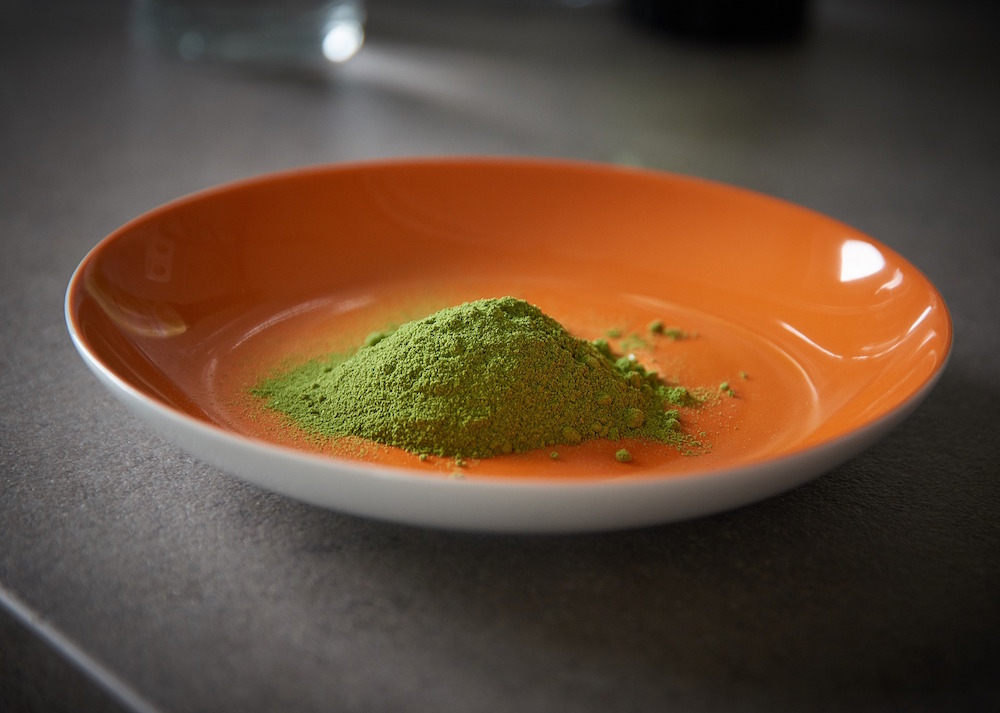Are you ready for optimal health? If so, then according to Mayo Clinic wellness dietitian Lisa Dierks, R.D., you need moringa in your life! Grown on large, tropical trees known as The Miracle Trees, (also known as Drumstick, Ben oil or Horse radish trees) in South Asia, West Africa, Central and South America, moringa oleifera has been used for centuries for the various medicinal properties found in its leaves, seeds, bark, sap and flowers (avoid the root, however – it’s potentially toxic). Rich in antioxidants, low in calories (only about 35 calories per tablespoon), and offering a full range of health benefits, moringa is most often and easily consumed in its powder form, which can be stirred into oatmeal, hummus, pancake batter and smoothies. It is also sold in capsules. Traditional Ayurvedic medicine names over 300 possible ailments which can be treated with some form of this miraculous plant. Referred to as “the new kale” by some, and known as a super-food by others, it’s not just the health food store crowd touting the wonders of this amazing plant – scientific proof exists to confirm its salubrious status too! Let’s take a look.
Benefits of Moringa
Moringa leaves and seed pods are the most frequently used parts of the plant, especially in India and Africa. The fresh, chopped leaves are well-known for their nutritional components, including being full of vitamin C (the leaves are said to be higher in vitamin C than an orange, containing 12% of the U.S. RDA, while 1 cup of fresh, sliced seed pods contain 157% RDA), protein (2 grams per cup or 3 grams per tablespoon in powdered form), calcium, iron, riboflavin, vitamin B6, vitamin A from beta-carotene, and magnesium.
Moringa has also been shown to have cholesterol-lowering effects, great for anyone struggling with high cholesterol levels in the blood. Animal studies have also shown success in reversing toxicity from exposure to arsenic, and newer research has revealed promise in potentially anti-cancer properties. It’s antifungal, antimicrobial and antibacterial properties have been well-documented in scientific papers, and it’s been noted to be effective in treating the effects of herpes simplex 1.
Additionally, a study in Phytotherapy Research found the plant can also help diabetics with blood sugar control and simultaneously lower blood pressure. The May 2008 issue of the Journal of Ethnopharmacology shared findings that leaf extracts also helped the body avoid plaque formation in blood vessels. The seed oil, among other benefits, has been used for hundreds of years to promote healthy hair and radiant skin, as its hydrating and detoxifying effects assist the body in neutralizing pollutants, preventing wrinkles, and slowing down premature aging. It can help the heart with its cardio-protective effects, and can also help with asthma and certain allergies. Moringa has been used in the treatment of wounds and the subsequent alleviation or prevention of scarring.
As if that’s not enough, moringa has also been known to have protective properties against neurodegenerative diseases , as its extracts potentially alter brain monoamines (such as dopamine, serotonin and/or norepinephrine), even possibly guarding against Alzheimers-related deficiencies. It can be used to promote good bone health as well, and is effective in treating arthritis.
Extracts are also proven to be helpful in the prevention of kidney, bladder and uterus stones due to their anti-urolithiatic and curative properties, as well as protectiveness against nephrotoxicity (issues with kidneys due to drug/toxin exposure) and bio-absorbent effects in removing heavy metals and other damaging toxins. Although it’s believed to reduce inflammation as well, the science on that has been fairly limited – so we’ll wait on the results of future studies.
Caution should be used due to moringa’s anti-fertility qualities, which include the estrogenic activity most notably attributed to its aqueous extracts in the prevention of uterine implantation and abortifacient action in women. (*PLEASE see note at bottom: some health professionals strongly advise that women of child-bearing years should not use moringa.)
There are downsides to moringa too, and, as with anything else, it must be taken in moderation. Ingesting too much can cause a stomach ache (be sure to follow package instructions if you purchased your it, which will likely tell you to limit powder form intake to one tablespoon at a time). Also, the leaves of the moringa tree contain a substantial amount of antinutrients, which act to reduce the body’s absorption of protein and minerals. In addition, if taken as a capsule supplement, the nutrient content will be notably decreased. It has also been rumoured to interact with prescription medication, as well as having infertility effects, with the bark potentially causing severe uterine contractions. *Some sites strongly advise this plant should not be taken by women during child-bearing years.

